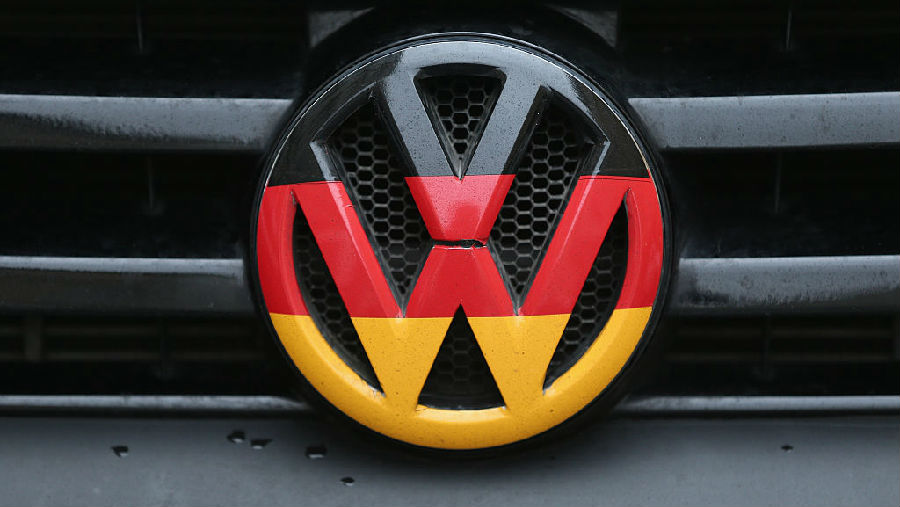Germany’s carmakers face a tough new reality. A sector that employs some 800,000 people and dominates global sales of luxury cars has long been an object of national pride: not just a symbol of the country’s postwar industrial success, but more or less synonymous with Germany Inc.
德国汽车制造商正面临着严峻的新现实。雇用约80万名员工、主导全球范围豪华汽车销售的德国汽车工业,长期以来一直是德国的骄傲:不仅是德国战后工业成就的象征,而且或多或少已成为德国企业界的代名词。
Politicians have been swift to defend its interests, but the backlash against diesel is changing attitudes. At a national “diesel summit” in Berlin on Wednesday, carmakers pledged to upgrade 5m cars to reduce harmful emissions. That promise may not be sufficient. In the past week, the government has ordered a recall of a Porsche model found to contain emissions-cheating software. Amid popular discontent, Conservative politicians are preparing to drop their opposition to class action lawsuits of the kind that Volkswagen has faced in the US.
虽然政治人士已经迅速行动起来保护德国汽车业的利益,但“柴油车排放门”引起的强烈反弹正在造成态度转变。在周三柏林举行的全国“柴油车峰会”上,各大汽车制造商承诺对500万辆柴油车进行升级,以减少有害气体排放。这一承诺可能不够。过去一周,德国政府下令召回一款发现装有排放作弊软件的保时捷(Porsche)车型。在公众普遍不满的情况下,保守派政治人士正准备放弃反对大众(Volkswagen)在美国面临的那类集体诉讼。
As serious as the debate over the industry’s proximity to government are claims that carmakers have also been too cosy with each other. As the magazine Der Spiegel reported last month, the EU Commission has launched a cartel investigation into VW, Daimler and BMW, as well as VW units Porsche and Audi, which have been meeting regularly in working groups since the 1990s to discuss technology and components ranging from brakes and clutches to diesel emissions cleaning systems.
汽车业与政府的亲密关系引起激烈争论,各大汽车制造商之间走得太近同样引起强烈指责。《明镜周刊》(Der Spiegel)杂志上月报道称,欧盟委员会(European Commission)对大众、戴姆勒(Daimler)、宝马(BMW)以及大众旗下的保时捷和奥迪(Audi)发起了一项卡特尔调查。自上世纪90年代以来,这些车企一直以工作组的形式定期召开会议,就技术和部件(从刹车片、离合器到柴油排放过滤系统)进行讨论。
The financial consequences could be considerable, if the five companies are found to be in breach of EU competition rules. Beyond the possibility of fines or reputational damage, though, the investigation raises questions over the unusually collaborative nature of German corporate culture, which has been a key ingredient in its manufacturing and export success.
如果这五大车企被发现违反了欧盟的竞争规定,财务上的后果可能相当严重。然而,除了可能的罚款及声誉损失外,这项调查还引发了对德国企业文化中不寻常的协作性的质疑。这种协作文化一直是德国制造业和出口成功的关键因素。
Germany industry is widely admired for its success in building long-term relationships with suppliers and research institutes. Companies also have a long tradition of co-operating with others in the same sector to boost efficiency and international competitiveness. Such collaboration can be both acceptable and desirable, if it helps to set standards, drive innovation, ensure interoperability and bring down costs for consumers.
德国工业在与供应商和研究机构建立长期关系方面取得的成功受到了广泛赞誉。德国企业也有与同行业竞争对手合作以提升效率和国际竞争力的悠久传统。此类协作既是可接受的,也是可取的——如果有助于确立标准,推动创新,确保协同操作性以及为消费者降低成本。
The question is whether this culture of collaboration made the companies involved more liable to cross the line into collusive, anti-competitive practices. BMW contests any such suggestion, saying it co-operates only on components that do not affect brand differentiation. However, Daimler and VW — which both volunteered information to regulators — are clearly worried that some parts of their discussions may not stand up to close scrutiny.
问题在于,这种协作文化是否已经令参与的企业更易于越界进行共谋和反竞争活动。宝马反对任何此类暗示,称其只在不影响品牌差异化的零部件方面进行合作。然而,戴姆勒和大众——两家公司都已自愿向监管机构提供信息——显然担心他们的一些讨论可能经不起仔细审查。

The extent of wrongdoing — in particular, any attempt to fix prices — is unproven. However, the exclusion of foreign rivals looks suspicious, and allegations that the companies agreed to purchase emissions cleaning systems that have turned out not to be adequate in real-world driving conditions are worrying. The hope must be that the commission holds the companies to account for past practices, and gives clarity on the limits to collaboration for the future. That matters for other sectors in Europe as well as Germany’s auto industry.
不当行为的程度——尤其是任何操纵价格的企图——并未经证实。然而,排挤外国竞争对手的嫌疑似乎存在,而且对于这些车企同意购买在实际驾驶环境中被证明效果不足的排放过滤系统的指控令人担忧。希望欧盟委员会能让这些车企对他们过去的做法承担责任,并就未来协作的限度给出明确说明。这对欧洲其他行业以及德国汽车业都很重要。
Having bet heavily on diesel, Germany’s carmakers need to press ahead with electric technology and to adapt their businesses to the rise of car sharing. This is not only a challenge for them. In a heavily regulated industry, politicians and governments have to facilitate the retreat from diesel. But even when the pressure of the autumn federal election has eased, an angry public is unlikely to let automakers shirk responsibility.
曾大举押注柴油车的德国汽车制造商需要推进电动汽车技术,并使自身业务适应共享汽车的兴起。这不仅对他们而言是一项挑战。在这个受到严格监管的产业,各国政治人士和政府必须促进柴油车的淘汰。但即便今秋德国联邦大选的压力有所缓解,愤怒的公众也不大可能让汽车制造商逃避责任。













